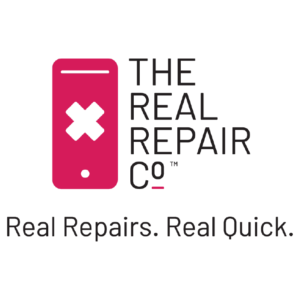Responsible Spending in An Age of Instant Gratification
I know this title may sound a little parental but the truth is we’ve got an economic downturn on its way and we could all use some skills in responsible spending. Furthermore, we’ve got to ask the question if our access to mobile technology connecting us to whatever we want at the click of a button 24 hours a day is healthy. While there are many benefits to being able to access whatever your heart desires that quickly, it can also be very detrimental to consumers and their spending habits.
According to research by CNBC, nearly 90% of both men and women make impulse purchases. Another poll by CreditCards.com found that almost half of Americans (44%) said they made an unplanned buy on the internet in the past three months (I think a pandemic virus might have something to do with it).
Understanding Instant Gratification
Interestingly, our struggle with instant gratification is directly linked to our brain function. Research from Princeton University shows there are two areas of the brain, one that is associated with our emotions and the other with abstract reasoning. The research showed our brains respond positively to instant gratification.
“Our emotional brain has a hard time imagining the future, even though our logical brain clearly sees the future consequences of our current actions. Our emotional brain wants to max out the credit card, order dessert and smoke a cigarette. And Our logical brain knows we should save for retirement, go for a jog and quit smoking,” said Professor David Laibson.
The above is especially true in today’s world of convenience, where everything you can imagine is so easily available, making the temptation often too great to resist.
We put together some tips to help you spend more responsibly in this age of instant gratification.
Automate your savings
It is much easier to save money when you don’t have access to it. Set up a savings account and create monthly debit orders from your checking account. Look at either opening a Tax-Free Savings account, 32 Day Notice account or an Investment Account.
Stick to a shopping list
Planning your meals and buying only what is on your shopping list are important when trying to save and spend responsibly. Supermarkets can be ‘impulse-buying’ traps for consumers. One can get carried away and mindlessly add to the cart without realizing the extra costs of that packet of sweets or bottle of wine.
Sleep on Big Purchases
If you are considering purchasing a ‘big ticket’ item, take time to really think about it before taking the plunge. Go through your expenses and evaluate whether it is something you can actually afford taking into account your daily commitments and savings.
Give Yourself Monthly Pocket Money
Give yourself a certain amount cash each month that you’re allowed to spend freely. You should limit your spending to only essential items once this money is finished. If you know you are going to be in an environment where there are shops, take just enough cash along to cover your expenses. Leave your credit or debit cards at home. This will force you to spend no more than you have in your wallet.
Avoid Debt at All Costs
This is a big one for us here at Payflex. Our mission is to help consumers avoid harmful credit cycles. It is the very reason we started payflex. So we can offer the option to buy something today but pay it back over 4 interest-free, zero fee instalments. It might not be the only answer but it’s a small start to avoiding credit traps wherever you can.
Invest Your Money
Investments that allow your money to grow over time are highly effective in helping individuals to reach their financial goals. Speak to a recommended financial adviser to assist you with setting up your investments to pursue long-term rewards.
Create a Vision Board
Thinking about the future can make it easier to keep your eye on the prize and resist impulse purchases. Create a vision board to help you stay strong, focused, and disciplined along your journey.
Treat yourself
Treat yourself! After all, you deserve a reward for all your hard work at trying to spend responsibly and save money. Rewarding yourself will help keep you motivated long-term.















































